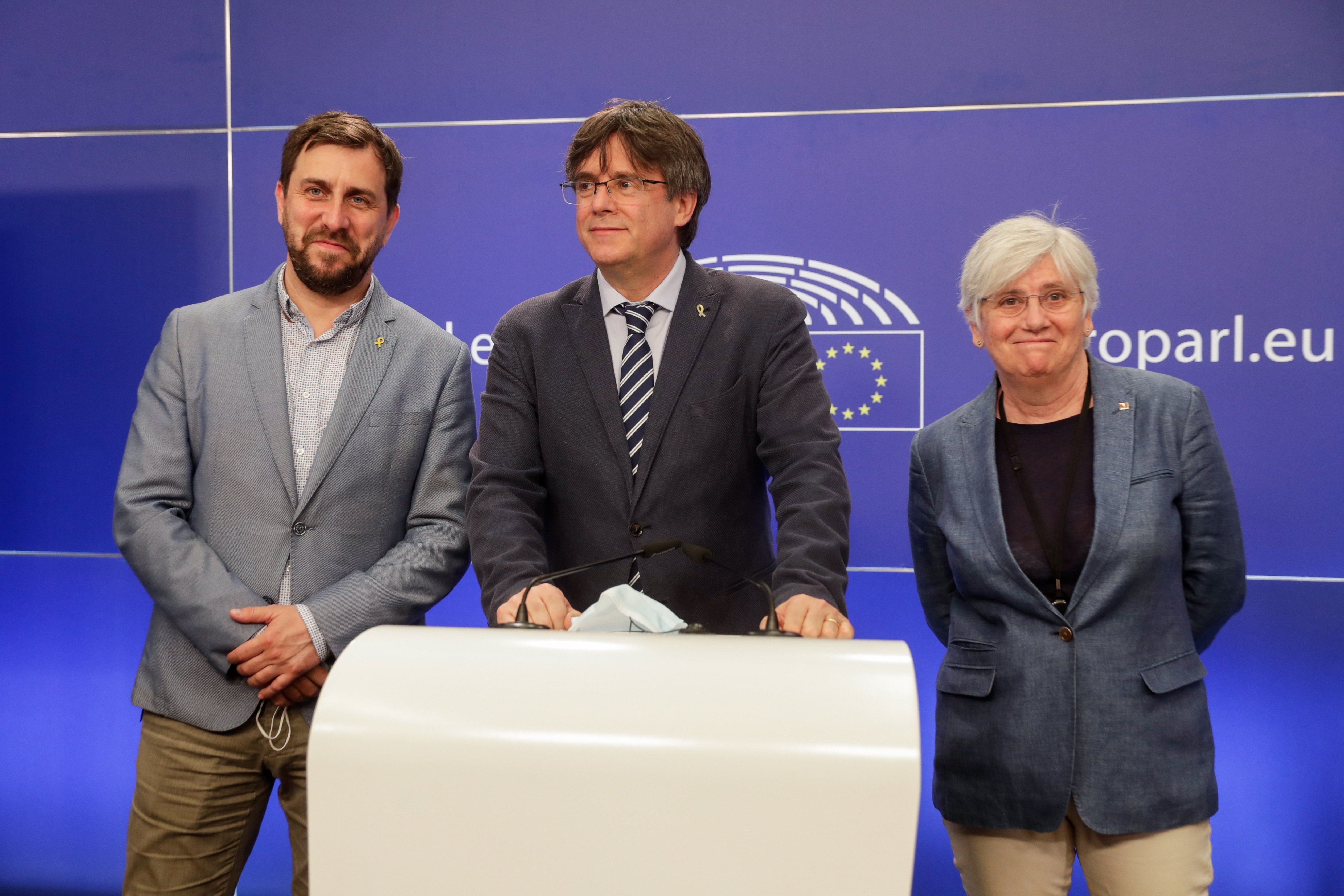The European General Court (EGC) has made it clear this Friday that the arrest warrants for the three Catalan MEPs in Belgian exile, Carles Puigdemont, Toni Comín and Clara Ponsatí, have been suspended due to the preliminary questions that Spanish judge Pablo Llarena presented to the Luxembourg courts. With this argument, the vice-president of the European court has once again refused the request by the pro-independence politicians to suspend the lifting of their parliamentary immunity. This suspension was requested by the three MEPs after Carles Puigdemont's arrest in Sardinia on September 23rd.
The vice-president of the EGC states that the criminal proceedings have been suspended until the higher Luxembourg court, the European Court of Justice, rules on the preliminary questions. It explains that this suspension is a direct consequence of the presentation of the said preliminary question and does not require any specific decision of the Spanish Supreme Court in this regard.
A warning to Spain's Supreme Court
The European judge states that the Supreme Court was aware of the suspensory effect of the preliminary question and that "its effects are binding on the competent national authorities, including judicial authorities, without the need for a specific decision on their part." However, when Puigdemont was arrested at L'Alguer airport in Sardinia, the Spanish Supreme Court affirmed that the European Arrest Warrant (EAW) for the former Catalan president was still in force and demanded his extradition.
With regard to this, the EU court does note that "some of the circumstances referred to by the MEPs tend to show that it is possible that certain national authorities did not draw all the conclusions from the submission of the request for a preliminary ruling", in particular those relating to the suspension of criminal proceedings and execution of EAWs.
And the court goes on to give a warning, that "under the principle of sincere cooperation, the national authorities must take into account the suspension of the criminal proceedings and the execution of the European Arrest Warrants" against Puigdemont, Comín and Ponsatí.
Warrants, suspended
In July, over three months after the European Parliament's vote to waive the three MEPs' immunity, the General Court already rejected an appeal from them for the interim reinstatement of the immunity, with a decision based on same argument as today's: that the EAWs were suspended, and this prevented the Belgian authorities or any other Member State from executing them. Therefore, a return to interim immunity was not necessary.
The judge now reaffirms these statements, stressing that the outcome of the arrest in Sardinia - the fact that Carles Puigdemont was released the next day, based on the conditions agreed in July by the General Court - "tends to confirm" that the three pro-independence MEPs do not run the risk of being handed over to the Spanish authorities at this stage, until the preliminary question has been resolved.
Immunity when travelling
In response to the claim from the MEPs that they might nevertheless be arrested or subject to restrictions on their freedom of movement, or even be extradited and imprisoned, and thus suffer serious and irreparable harm, the vice-president of the court insists that "their arrest, in itself, does not constitute serious and irreparable harm". That in order to be classified as such, it would have to "impair the MEPs' right to freely exercise their parliamentary mandate and the proper functioning of Parliament".
"As was observed in the first order for interim measures, the MEPs still enjoy their immunity when travelling to attend meetings of the Parliament, so that serious and irreparable damage caused by an arrest remains hypothetical," it resolves.
In the main image, Catalan pro-independence MEPs Toni Comín, Carles Puigdemont and Clara Ponsatí during a press conference in the European Parliament / Efe

